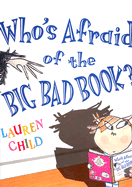The New York Times, long known to the righteous as a bastion of devilish, liberal propaganda, this week took their assault on the values of God-fearing Americans one step further by devoting multiple articles to books featuring sin-drenched topics. Listed below are links to two of our favorites.
Against Moderation, a review of Barbara Holland's The Joy of Drinking
by Robert Harris

It’s odd the books people get asked to review. Take this one, a carefree history of our long love affair with drinking. I have no training as a historian, just some slight experience on both sides of bars. And perhaps an exaggerated reputation for disparaging today’s ubiquitous alcohol-free business lunches. Barbara Holland, though, might empathize. She reminds us that in 1787, two days before their work was done, the 55 delegates to the Constitutional Convention “adjourned to a tavern for some rest, and according to the bill they drank 54 bottles of Madeira, 60 bottles of claret, 8 of whiskey, 22 of port, 8 of hard cider and 7 bowls of punch so large that, it was said, ducks could swim around in them. Then they went back to work and finished founding the new Republic.” Note the 55 delegates and 54 bottles of Madeira. Which founder was slacking?
But “The Joy of Drinking” begins way before “our Revolution was born and raised in taverns.” It goes back some 10,000 years to when society, or what there was of it, went agricultural. Crops got planted and harvested, and some rotted and fermented, forming a liquid you could drink. The party began. Holland cites Faulkner as observing that civilization began with fermentation, and he’d have known.
Holland has a light, winsome touch and is always funny. Here she is on Winston Churchill making a martini: he “poured the gin into a pitcher and then nodded ritually at the bottle of vermouth across the room.” She tells us that even the National Institutes of Health admits that what it calls “alcohol readministration” alleviates the symptoms of both alcohol withdrawal and hangovers, and notes that “‘readministraton’ seems to mean hair of the dog.” She quotes the Puritan minister Increase Mather — “Drink is in itself a good Creature of God, and to be received with thankfulness, but the abuse of drink is from Satan, the wine is from God, but the Drunkard is from the Devil” — and declares his words “an early version of our incessant ‘moderation’ sermons, with only a pint or two dividing heaven from hell.”
Click here to read the full article.
Tobacco Road, a review of Allan M. Brandt's THE CIGARETTE CENTURY: The Rise, Fall, and Deadly Persistence of the Product That Defined America
By Jonathan Miles
 It is a familiar exchange: I step up to the counter at a convenience store and order my daily ration of Camel cigarettes, which I have been smoking since the Reagan administration and, as it happens, am smoking as I type this. Sliding the pack across the counter, the clerk — female clerks, typically; male clerks are more laissez-faire — sighs and says to me, “You know you need to quit.” My response, well honed over the years, goes like this: “I know I should quit,” I say, “but there’s one problem. I enjoy it.” On rare occasions, the clerk startles and smiles — that’s how it played out this morning — as if tickled by this forbidden admission. Far more frequently, however, I find myself at the receiving end of a uniformly bemused, pitying and faintly disgusted stare. I cannot possibly mean what I have just uttered, the stare says to me. The victim cannot confess to the crime. The cash register rings its tinny ring as the clerk slides the drawer shut and sadly wags her head.
It is a familiar exchange: I step up to the counter at a convenience store and order my daily ration of Camel cigarettes, which I have been smoking since the Reagan administration and, as it happens, am smoking as I type this. Sliding the pack across the counter, the clerk — female clerks, typically; male clerks are more laissez-faire — sighs and says to me, “You know you need to quit.” My response, well honed over the years, goes like this: “I know I should quit,” I say, “but there’s one problem. I enjoy it.” On rare occasions, the clerk startles and smiles — that’s how it played out this morning — as if tickled by this forbidden admission. Far more frequently, however, I find myself at the receiving end of a uniformly bemused, pitying and faintly disgusted stare. I cannot possibly mean what I have just uttered, the stare says to me. The victim cannot confess to the crime. The cash register rings its tinny ring as the clerk slides the drawer shut and sadly wags her head.
Allan M. Brandt’s “Cigarette Century,” a fat chronicle of the rise and fall of the cigarette in the 20th century, delivers that same truthful stare. Brandt, a professor of the history of medicine at Harvard Medical School, canvasses giant chunks of terrain here — the culture, science, politics, law and global spread of the cigarette, to cite just his section headings — without ever pausing to examine the central, vexing paradox of smoking: that in return for death, cigarettes give pleasure. Justifiable pleasure? Of course not. What Kant deemed “negative pleasure”? Perhaps. But pleasure nonetheless. Smokers, in Brandt’s view, are midwifed by an array of potent forces: ferocious tobacco advertising; peer pressure; cultural aesthetics (i.e., the imitable artfulness of Humphrey Bogart cupping a smoke); the addictive properties of nicotine; the tobacco industry’s pernicious campaign to obfuscate the perils of smoking; youthful longing for easy rebellion; and even, as evidenced by the boom in smoking after World War I, the scalding stress of trench warfare. But the cigarette itself, outside of its chemical components, gets scant credit. “One must not forget,” Jean Cocteau once wrote, “that the pack of cigarettes, the ceremony that extracts them, lights the lighter, and that strange cloud which penetrates us and which our nostrils puff, have with powerful charms seduced and conquered the world.” To be immune to those charms is naturally Brandt’s prerogative. To refuse or fail to acknowledge them in a history of the cigarette, however, is more problematic, and suggests the question: Is a cigarette sometimes just a cigarette? Or does the totality of its meanings — up to and including its flavors, fragrance and neurological kick — stem from a cultural moment, a peculiar and corporate-engineered hinge in time and place?
Click here to read the full article.
 NPR's John Kelly tries to find A Cure for Kids' Summer Reading Doldrums in an archived piece from 2005. He addresses what seems like an obvious question, but one that most parents and kids would be hard pressed to answer themselves: Why are specific, mandatory books a good idea?
NPR's John Kelly tries to find A Cure for Kids' Summer Reading Doldrums in an archived piece from 2005. He addresses what seems like an obvious question, but one that most parents and kids would be hard pressed to answer themselves: Why are specific, mandatory books a good idea?






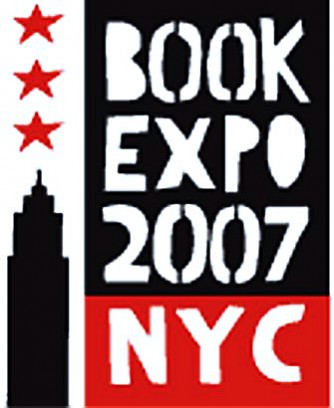




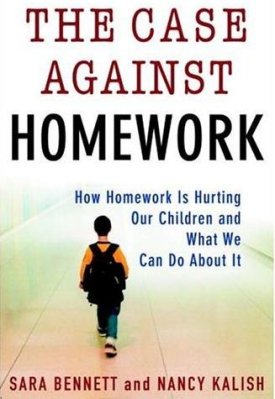
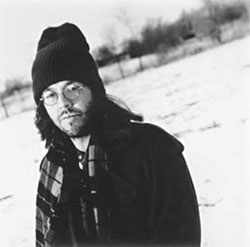




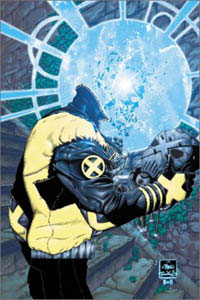




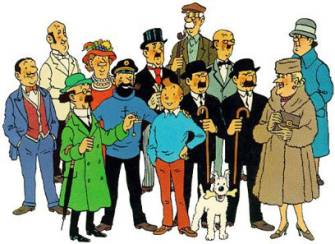

.jpg)
















